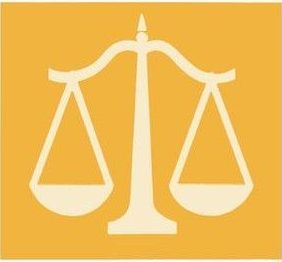Introduction
In the modern political landscape, the role of political consultants has become increasingly significant. These professionals play a vital role in shaping campaigns, crafting messages, and strategizing on behalf of political candidates and parties. However, with great power comes great responsibility, and political consultants are not exempt from ethical considerations. Balancing their responsibilities to clients with their commitment to integrity can be a challenging task. This blog delves into the ethical considerations that political consultants must navigate to maintain a delicate equilibrium between their responsibilities and their integrity.
- The Dual Role of Political Consultants
Political consultants are often tasked with two primary roles: advocating for their clients and serving the greater good. While their primary responsibility is to ensure the success of their clients’ campaigns, they must also consider the broader impact of their strategies on the political system and society. This duality requires them to carefully assess the consequences of their actions, ensuring that their advice and tactics align with both short-term goals and long-term ethical standards.
- Transparency and Honesty
One of the foundational principles of ethical political consulting is transparency. Consultants must provide clients with honest assessments of their chances, potential risks, and the likely outcomes of various strategies. This includes being forthright about financial matters, potential conflicts of interest, and the limitations of their expertise. Transparency not only builds trust between consultants and clients but also ensures that campaigns are built on realistic expectations.
- Respect for Democracy
Political consultants play a critical role in shaping the democratic process. Therefore, they must uphold the values of democracy, such as fair representation, equal access to information, and the integrity of elections. Consultants should be cautious not to engage in tactics that manipulate or disenfranchise voters, as these actions undermine the democratic principles they should strive to protect.
- Avoiding Negative Campaigning
Negative campaigning, while often effective in swaying public opinion, raises ethical concerns. Consultants must consider the potential harm caused by spreading misinformation, using personal attacks, or exploiting sensitive issues. Balancing the need to contrast candidates’ positions with maintaining a respectful tone is essential for preserving the integrity of the political discourse.
- Safeguarding Privacy and Data Ethics
In the digital age, political consultants have access to vast amounts of personal data. Respecting individuals’ privacy rights and adhering to data protection laws is crucial. Consultants should refrain from exploiting personal information for manipulative purposes and should adopt ethical data practices to ensure the responsible use of voter information.
- Ethical Fundraising Practices
Financing campaigns is a significant aspect of political consulting. Consultants must ensure that fundraising efforts are conducted ethically and transparently, avoiding any hint of corruption or undue influence. Transparent reporting of campaign contributions and expenses is essential for maintaining the integrity of the electoral process.
- Maintaining Professional Independence
Political consultants must maintain professional independence to provide unbiased advice and strategic recommendations. They should avoid being swayed by personal biases or external pressures that could compromise the objectivity of their counsel. This commitment to impartiality contributes to the ethical foundation of their work.
Conclusion
The role of political consultants is indispensable in modern politics, but it comes with a heavy responsibility to uphold ethical standards. Navigating the balance between fulfilling their obligations to clients and preserving their integrity is a delicate challenge. By prioritizing transparency, respect for democracy, honesty, and responsible decision-making, political consultants can contribute to a healthier political climate that serves the greater good. As they shape campaigns and influence political outcomes, their ethical considerations will play a pivotal role in defining the integrity of the political process.

